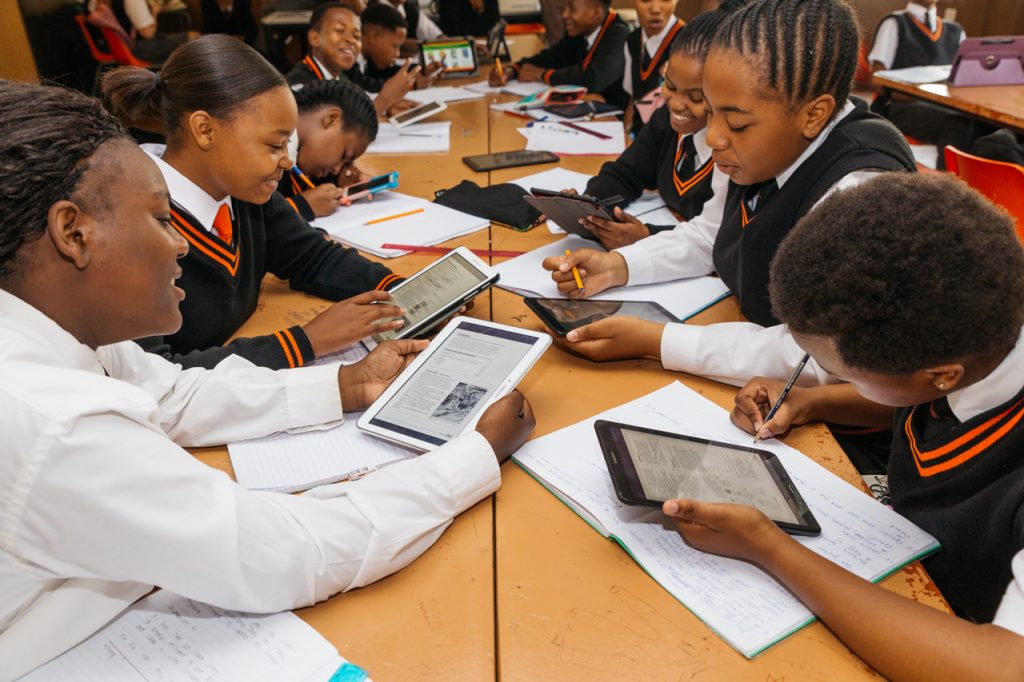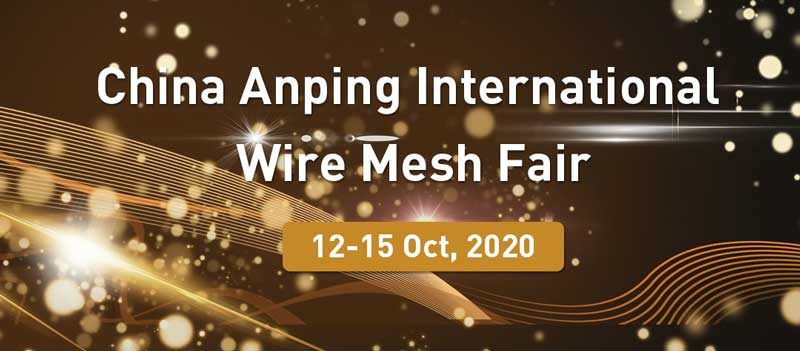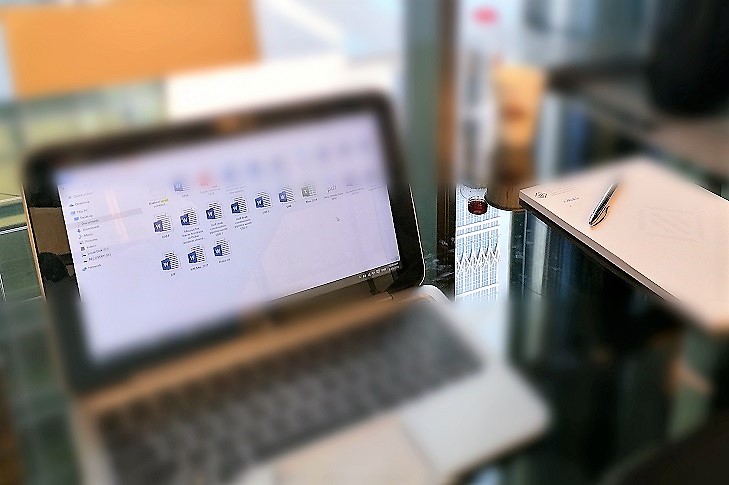Technology has the potential to fundamentally transform societies. Information and Communications Technology (ICT) and broadband are becoming central to the societal developments around the world - enabling rapid improvements to industrial production...
Technology has the potential to fundamentally transform societies. Information and Communications Technology (ICT) and broadband are becoming central to the societal developments around the world - enabling rapid improvements to industrial production and societal services, positively influencing the way we live and interact with our environment.
Africa is home to over a billion people and the population is expected to grow in the coming years. It is projected to grow from 17% in 2020 to 26% in 2050 and 39% by 2100 of the global population while the share of Asia will fall from 59% in 2020 to 55% in 2050 and 43% in 2100.
It is also a continent with the most growing economies and many from a low base; 9 of the 20 fastest growing in 2020 according to the IMF with rates above 6% of GDP (not adjusted for Covid-19 effects). To accelerate its journey towards economic prosperity, the continent will have to take advantage of the new technologies to improve the government, business environment and society.
Africa is rich in mineral resources. Deposits of copper, manganese, nickel, gold, lead, phosphate, platinum, etc abound. South Africa’s South Deep gold mine is the largest gold mine in the world by reserves. But the question is, what is the limit of support that natural resources can give Africa’s economic boom? There is an undiscovered gold mine and an immense untapped opportunity in ICT to enable Africa’s economic prosperity.
Africa has gone a long way in its digitization journey from mobile telephony to broadband – connecting and digitizing entire sectors economies, jobs, education, healthcare, government and societies. As digital infrastructures and interactions become increasingly central to the functioning of Africa’s societies and economies, affordable broadband access will need to be extended to billions of individuals.
ICT allows people, knowledge and devices to be connected in new ways, and African countries that embrace its potential can create new value, operate efficiently and benefit from a significant return on investment.
The current Covid-19 restrictions have demonstrated the benefits and necessity of a digitized economy, facilitating working from home and hoke schooling as examples. This could prove to be an opportunity for Africa to accelerate its journey towards raising the role digital and telecom services play in a socio-economical context. Modernizing technological innovation towards the challenges countries are experiencing, will help Africa emerge from the economic challenges in a more sustainable manner.
Banking the Unbanked
Mobile financial services are a global game-changer with an open money network being the connection needed between the financial industry and telecom to increase both the commercial and social benefits.
With mobile money, people can make payments anywhere at any time with their mobile devices connected with internet. This allows end-users to seamlessly purchase products or services without having to physically hand over cash or swipe a card. The freedom to send, spend and receive money with a mobile phone is quickly becoming an essential part of life for billions of people.
According to data from Ericsson ConsumerLab, more than half of consumers in Africa are using mobile money services through an agent, and some 20% use mobile money themselves on a mobile phone. However, the unbanked are the ones who are least involved in the formal financial system, due to factors such as distance to banks, education, and the inability to authenticate their identity,
Increasing financial inclusion through the use of digital technology is an essential element in furthering the economic development of Africa. And the story does not end here. Mobile money services have become an essential, life-changing tool across Africa, providing access to safe and secure financial services but also to energy, health, education and employment opportunities.
Empowering an intelligent, sustainable and connected Africa
What is now needed is a framework that embeds ICT squarely in the efforts to address inclusive socioeconomic development in Africa. As we continue toward a more urbanized world and the impacts of climate change grow progressively dire, the need for innovations in line with Sustainable Development Goals becomes truly paramount.
ICT has a unique potential to enable other industrial sectors to move towards the low-carbon economy that will be central to meeting the Sustainable Development Goals (SDGs) of the United Nations (UN).
Digitalization creates an infrastructure that can boost livelihoods, promote financial inclusion, and improve access to health, education, government services and more. Furthermore, it aids in humanitarian matters such as addressing poverty and hunger, refugees, peacebuilding and disaster response.
Ericsson is a strong believer of using technology to create sustainable improvements in societies and utilize mobile broadband networks to tackle a range of global challenges. We take a proactive stance and collaborate with a wide range of stakeholders to scale the impact of our joint programs and initiatives in areas like climate change, education, human rights and humanitarian response.
Technology for Good is Ericsson’s initiative where we use our expertise in new technologies, our solutions, and our advocacy to make life better around Africa. This is because internet access is a fundamental enabler to improve quality of life, as it provides the opportunity to access useful information and services – becoming a critical factor in fulfilling the SDGs.
Unlocking the potential of technology
To kick start a technology-enabled transformation and realize its benefits, policymakers need to take a broader, more coherent policymaking approach. As the process unfolds, global partnerships will prove essential to enabling a cross-industry engagement in defining and building the technology ecosystem of the future.
Ericsson and the SMART Africa Secretariat have entered an ICT-based partnership to develop a more connected and fully functioning knowledge-based society in Africa. As a result of the partnership, Ericsson joins the Smart Africa Alliance as technical advisor and platinum private sector member to craft blueprints supporting the implementation of the SMART Africa vision and plan.
The SMART Africa Initiative is geared towards connecting, innovating and transforming the continent into a knowledge economy thereby driving global competitiveness and job creation. The initiative also aims at enabling Member States to become more competitive, agile, open and innovative smart economies with the most favorable business climates that attracts large-scale investments, rewards entrepreneurship and enables fast growth and exports, leveraging ICT innovations to transform African nations into smart societies.
Modernizing technological innovation towards the challenges that the countries are experiencing, will help Africa emerge its economy in a more sustainable manner. ICT can provide inclusive socio-economic development and has the potential for rapid service improvements and digital readiness across societies and industries.
A futuristic view
As a technological age, we are moving into a new space of connected machines, vehicles, wearables and many other things. From within these spaces, entire new enterprises and business models will emerge and deliver new value opportunities across manufacturing, transport, healthcare, energy and more.
In this new era of mobility, enterprise digitalization with globally scalable 5G including the Industry 4.0 transformation has the potential to deliver much-needed value opportunities for enterprises, communications service providers and technology vendors and Africa is no exception to gaining from these immense opportunities.
Source : www.bizcommunity.africa




